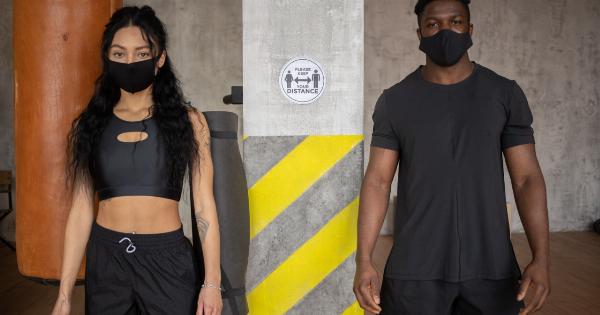When the sun goes down, the world transforms into a different place. With the cover of darkness come a whole new set of risks and challenges that we must face. From prowling predators to mosquito-borne diseases, the night can be a dangerous time.
In this article, we will explore some of the common illnesses that strike after dark and discuss effective ways to protect yourself from these nocturnal risks.
The Dangers of Mosquitoes:
Mosquitoes are tiny creatures that pose a significant threat to human health, especially during the nighttime hours. These blood-sucking insects are known carriers of diseases such as malaria, dengue fever, Zika virus, and West Nile virus.
As they thrive in humid environments, tropical regions are especially prone to mosquito-borne illnesses.
To protect yourself from mosquito bites, consider the following measures:.
1. Use Mosquito Repellent:
Apply mosquito repellent before stepping out at night. Look for products that contain DEET, picaridin, or oil of lemon eucalyptus, which are effective in repelling mosquitoes. Make sure to follow the instructions on the label and reapply as necessary.
2. Wear Protective Clothing:
Cover your exposed skin as much as possible by wearing long sleeves, long pants, and socks. This can create a physical barrier between mosquitoes and your skin, reducing the risk of bites.
3. Sleep Under a Mosquito Net:
If you live in an area with a high mosquito population, consider sleeping under a mosquito net to create a protective barrier around your bed.
This is especially important for infants and young children, who are more vulnerable to mosquito-borne diseases.
4. Remove Standing Water:
Mosquitoes breed in stagnant water, so make sure to eliminate any potential breeding sites around your residence. Regularly empty water from containers, change water in flower vases, and unclog rain gutters to prevent water accumulation.
The Threat of Nocturnal Animals:
While many animals sleep at night, some nocturnal creatures come alive after dark. These animals can pose a threat to humans, either directly through attacks or indirectly through the transmission of diseases.
Let’s explore some common nocturnal risks and how to protect yourself.
1. Protecting Yourself from Bats:
Bats are known carriers of various diseases, including rabies. If you encounter a bat, do not handle it directly. Contact local animal control for assistance in removing the bat safely.
To protect yourself from potential exposure to bats, consider bat-proofing your home by sealing entry points and securing windows with screens.
2. Avoiding Snake Bites:
Snakes are another nocturnal threat that humans may encounter. To minimize the risk of snake bites, stay on well-lit paths and avoid walking in tall grass or dense vegetation during the night.
Wearing protective footwear, such as boots, can also provide an additional layer of protection.
3. Preventing Tick Bites:
Ticks, which are commonly associated with wooded or grassy areas, can pose a risk to humans during the night. To prevent tick bites, wear long sleeves, long pants tucked into socks, and use insect repellents containing at least 20% DEET.
After outdoor activities, carefully check your body for ticks and promptly remove any you find to reduce the risk of tick-borne diseases.
Guarding Against Nighttime Germs:
In addition to animal-related risks, nighttime also presents challenges when it comes to protecting ourselves from harmful germs and bacteria. Here are some important practices to adopt:.
1. Regular Hand Washing:
Wash your hands thoroughly with soap and water before eating or touching your face. Proper hand hygiene is crucial in preventing the spread of various illnesses, including the common cold, flu, and gastrointestinal infections.
2. Clean and Disinfect Surfaces:
Regularly clean and disinfect commonly touched surfaces in your home, such as doorknobs, light switches, and countertops. This helps to minimize the risk of germ transmission from one person to another.
3. Avoid Close Contact with Sick Individuals:
If you encounter someone who is visibly ill, try to maintain a safe distance and avoid close contact. Viruses and bacteria can spread through respiratory droplets, so maintaining a safe distance can help reduce the risk of transmission.
Conclusion
With the darkness of night comes a unique set of risks that we must be aware of and take precautions against.
By following the tips mentioned above, such as using mosquito repellent, protecting yourself from nocturnal animals, and practicing good hygiene, you can greatly reduce the chances of falling victim to illnesses that strike after dark. Stay informed, be prepared, and take the necessary steps to protect yourself and your loved ones.





























